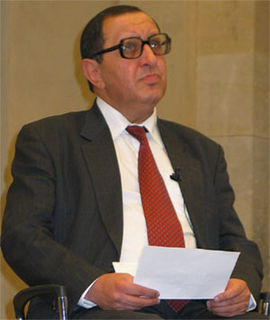A Quote by Jamal Khashoggi
When Saudi Arabia's war in Yemen erupted in March 2015, there was widespread Saudi popular support for it - including by me.
Related Quotes
I was the first senior American official to meet with Riyadh's dynamic Deputy Crown Prince Mohammed bin Salman after the Saudi intervention in Yemen in 2015. I reiterated the United States' commitment to defend Saudi Arabia against Houthi aggression and to help press the Houthis back to the bargaining table.
I think no country is going to be immune from the Arab awakening because the Arab awakening is driven by deep human longing for dignity, for justice and for freedom. I think that applies to young people in Saudi Arabia as much as to young people in Egypt, Tunisia, or Yemen, or Libya, or Syria. If I were in Saudi Arabia, I would be getting ahead of this and looking for ways to appreciate those aspirations and align my country with them.
If production does not increase in Iraq in an exponential way between now and 2015, we have a very big problem, even if Saudi Arabia meets its obligations. The figures are very simple, you do not need to be an expert. It is enough to know how to do a subtraction. China will grow very quickly, India also, and even Saudi Arabia projections of the 3 Mb/day will not be enough to meet the rise of Chinese demand.
If you ask a Saudi Imam why women in Saudi Arabia can't drive, he'll say, 'Because Islam demands it.' But that's absurd, because - first of all - Islam demands no such thing; and secondly, the only country in the world in which women can't drive is Saudi Arabia. The inability to understand the difference between a cultural practice and religious belief is shocking among self-described intellectuals.
































